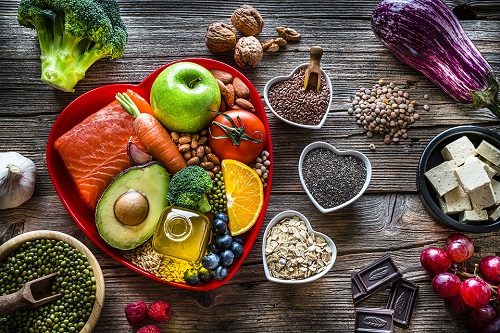Peritoneal Dialysis: 5 Tips to Increase Potassium

Potassium is a mineral that has an important role in our body. It helps to keep muscles and nerves working properly. One major muscle in the body is the heart. When potassium levels run too high or too low it can affect the way the heart beats. Keeping your potassium at a healthy level is important.
Potassium Blood Test Results Levels for Dialysis Patients*
- Low less than 3.5 mg/dL
- Normal 3.5 to 5.5 mg/dL
- High 5.6 to 6.0 mg/dL
- Very high 6.0 mg/dL or higher
*The potassium range for non-dialysis kidney patients has a lower normal range of 3.5 to 5.0 mg/dL
Hypokalemia
Low potassium levels, called hypokalemia, may occur in peritoneal dialysis (PD) patients as PD treatments remove potassium more often than hemodialysis. Read “Peritoneal Dialysis: Need More Potassium?” for more information.
Hypokalemia may also occur when a person is not eating well for a period of time. With a low food and beverage intake, less potassium is consumed. Frequent vomiting or diarrhea may also cause your body to lose potassium. Use of certain diuretics, or water pills, will cause the body to lose potassium as well. All of these conditions may lead to a low level of potassium in the blood.
If you are experiencing hypokalemia, work with your nephrologist and renal dietitian to maintain a healthy potassium level. Here are five tips which may help increase potassium levels.
Include fruits and vegetables in your diet.
Fruits and vegetables vary in their potassium content. Work with your renal dietitian to determine how many servings of the higher-potassium fruits and vegetables you should include in your diet daily.
High-potassium fruits include: bananas, cantaloupe, casaba melon, dates, dried fruit, guava, honeydew melon, kiwi, mango, nectarine, oranges, papaya, persimmons and prunes.
High-potassium vegetables include: artichokes, avocado, bamboo shoots (fresh), dried beans (kidney lentils, lima, navy, pinto, soy), fresh beets, beet greens, chard, Chinese cabbage, kohlrabi, dried peas, pickles, potatoes, pumpkin, rutabagas, sauerkraut, cooked spinach, succotash, sweet potatoes, tomato (fresh, paste, puree, sauce) and fresh water chestnuts.
To view serving sizes of these fruits and vegetables, see Potassium and Peritoneal Dialysis.
Include dairy in your diet.
Milk and yogurt are high in potassium. Depending on your phosphorus and calcium blood levels, your renal dietitian will determine how much dairy may be included in your daily intake.
Choose protein food sources that are also high in potassium.
These include beef, pork, lamb, halibut, salmon, clams, swordfish, trout, scallops and sardines. Nuts and seeds also contain both protein and potassium. Here are a few DaVita.com recipes to enjoy:

Enjoy beverages high in potassium.
Orange juice, prune juice, carrot juice, low-sodium tomato juice and low-sodium vegetable juice are naturally high in potassium. There are many new juice blends and other beverages that are good sources of potassium available on the market. For example, coconut water is readily available at the grocery store. It is a high source of potassium and can be purchased pure or added to other fruit juices.
Add potassium.
Salt substitutes replace sodium with potassium to obtain the salty flavor. Use salt substitutes to flavor your food to help increase your potassium intake. Your doctor may prescribe a potassium supplement to aid in increasing your potassium levels. Your doctor may also choose a type of diuretic, or water pill, which will help your body keep potassium, allowing your potassium levels to increase.
Working with your health care team is key to maintaining your potassium levels within a healthy level. Your renal dietitian will help you determine how much of the above to include in your diet daily. Start a conversation with your health care team today.
References:
- https://www.mayoclinic.org/symptoms/low-potassium/basic/definitions/sum-20050632
- https://blogs.davita.com/kidney-diet-tips/peritoneal-dialysis-more-potassium/
- https://www.davita.com/diet-nutrition/articles/basics/potassium-and-peritoneal-dialysis
- https://my.clevelandclinic.org/health/diseases/17740-low-potassium-levels-in-your-blood-hypokalemia
- https://blogs.davita.com/kidney-diet-tips/keeping-healthy-potassium-level/
Additional Kidney Diet Resources
Visit DaVita.com and explore these diet and nutrition resources:
- DaVita Food Analyzer
- DaVita Dining Out Guides
- Today’s Kidney Diet Cookbooks
- DaVita Kidney-Friendly Recipes
- Diet and Nutrition Articles
- Diet and Nutrition Videos
- Kidney Smart® Virtual Classes
This article is for informational purposes only and is not a substitute for medical advice or treatment. Consult your physician and dietitian regarding your specific diagnosis, treatment, diet and health questions.

Recent Comments